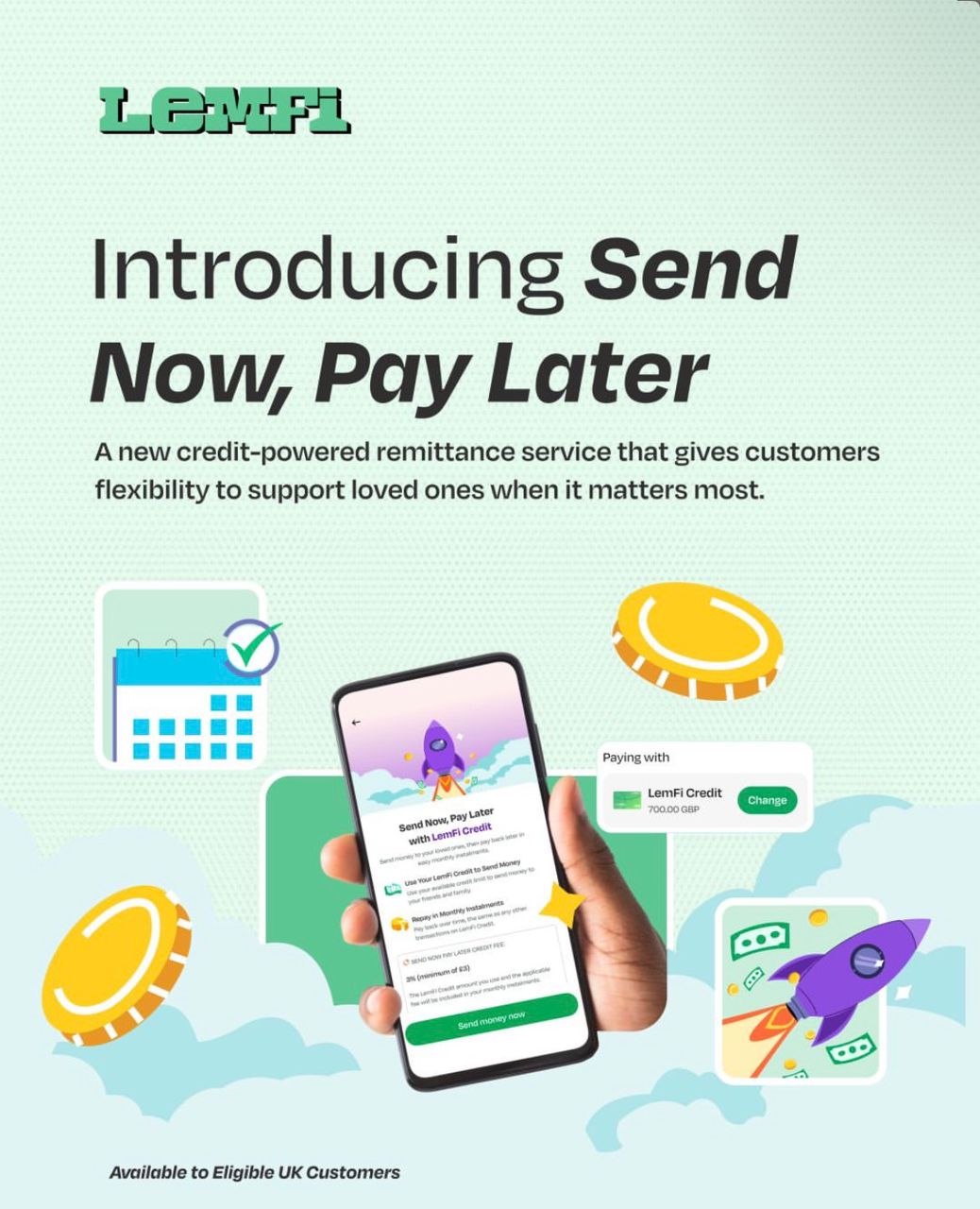LemFi, the London-based fintech known for its cross-border payment solutions, has unveiled a new feature called ‘Send Now, Pay Later’ (SNPL), a groundbreaking remittance service designed to help UK-based immigrants send money home even when short on funds.
The product marks a major innovation in the remittance industry, introducing credit-backed transfers for users who may not yet have an established UK credit history. With SNPL, LemFi aims to provide a safety net for newcomers and immigrants who often face financial inequality in their early months of settling abroad.
“SNPL is a credit-powered remittance product built to serve customers who are new to the country and have limited UK credit history,” LemFi said in a statement shared with Technext. “It’s an alternative to traditional providers that demand upfront payment, even in emergencies.”
Redefining Remittances for the Modern Migrant
For many immigrants, sending money home isn’t optional, it’s a responsibility. Yet, with limited access to formal credit systems, many find themselves unable to meet urgent family needs back home. LemFi’s SNPL solves this by allowing users to send money instantly and repay later, providing flexibility without the burden of traditional banking requirements.
The product reflects LemFi’s broader mission: to level the financial playing field for immigrants. By leveraging technology and alternative credit assessments, the company is bridging the gap between inclusion and access, helping users navigate financial systems that weren’t built for them.
A Step Forward for Financial Inclusion
Since its launch, LemFi has become a trusted platform for cross-border payments across Africa, Europe, and North America. The introduction of ‘Send Now, Pay Later’ positions it as not just a remittance service, but a lifeline for global migrants, giving them more control over their finances and family commitments.
With this new feature, LemFi continues to demonstrate what fintech innovation looks like when built with empathy, products designed not just for users, but for real human experiences.









Leave a comment